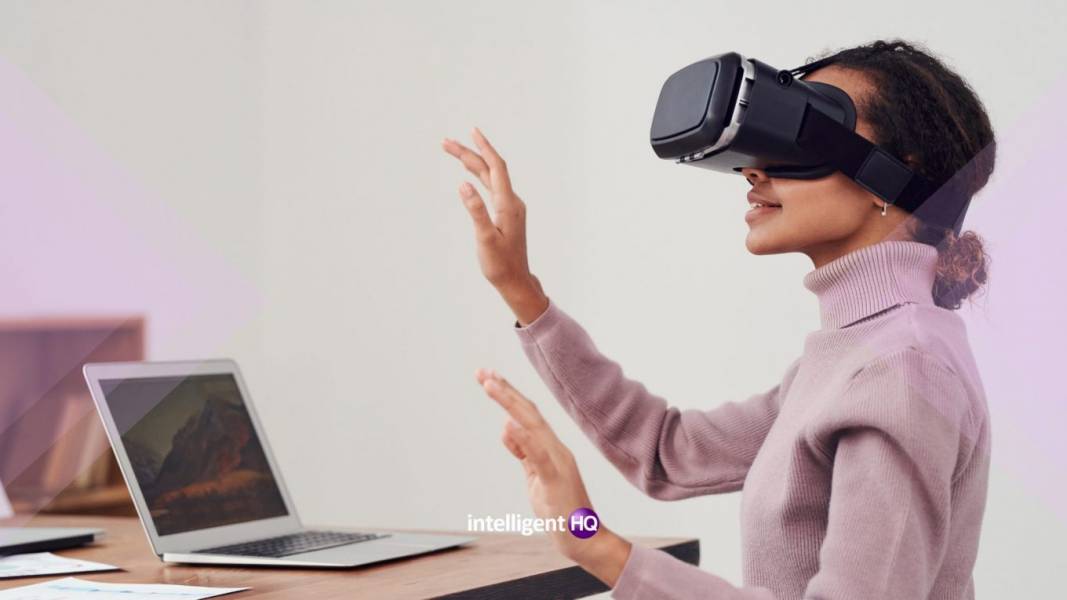Remember Michael Jackson’s posthumous performance on his hit number “Slave To The Rhythm“? It resurrected him from the dead. Amazing, isn’t it? The hologram performance was the first insight into how our lives are going to be reinvented, transforming our traditional ways of living and working. Now as the world recuperates itself from the damages of the pandemic, these topics are becoming more relevant in their existence.

Although VR took a little longer than a decade to get into the mainstream, many new technologies like Machine Learning, Artificial Intelligence, Augmented Reality, and biometric sensors are already gaining traction, with big businesses innovating with their applications.
The world faced some grave challenges during the last few years, especially as the pandemic roped in. In light of recent advancements, it is finding respite with sustainable technological solutions.
Metaverse is now emerging to open vast opportunities, that were even unimagined until recently:- making friends and acquaintances, designing architectural structures, touring through virtual real estate, rearing virtual pets, and engaging in virtual concerts and events in the metaverse, besides simply earning money from digital assets.
Exploring these dimensions, we realise how technology and businesses are impacting the velocity of evolution of the metaverse in our lives.
Technological advancements accelerating the ingression of the metaverse
The current metaverse solutions do not even require establishing a sophisticated infrastructure, like a computer, a desktop, a mouse, or a keyboard. In fact, the rapid progress made in computer-generated holograms replaces any need for VR headsets with windows to create holograms from computer images or pods to project people and images in the physical space.
Haptic gloves enable the users to interact better in the 3D space based on parameters, like motion, pressure, and texture. Avatar-based platforms can offer immersion by focussing on interactive and collaborative working as well as learning opportunities.
“With the shift to remote working from the pandemic, keeping employees engaged has become a top challenge for many companies. You can’t keep 20 people engaged in the flat 2-D environment of a video call; some people don’t like appearing on camera; you’re not simulating a real-life scenario. That is why companies are turning to metaverse-based platforms.”, Pushpak Kypuram, Founder and Director of NextMeet, a platform that offers social connection, mobility, and collaboration at virtual workspaces.
The digital avatars can perform several activities in real-time: live presentations in the boardrooms, networking with fellow digital colleagues in a lounge, or approaching a virtual helpdesk. For instance, a company can make an onboarding process virtually interesting by facilitating it with a walk around the virtual office space or a gallery to explore the company.
Further, these experiences can be enhanced with special features, like creating well-being and leisurely spaces, instances of informal and spontaneous conversations, and live status tracking of every individual digital element in the scene.
Businesses providing impetus to the metaverse
Well-demarcated work hours right from the comforts of home is a key concept that metaverse offers for improved productivity and better communications among teams. Virtual workspaces can be designed specifically to match the organisations’ vision and mission statements, highlighting their basic character.
A research lab in a Zen Garden or an art class at the beach could provide a fresh perspective on the innovation taking place there.
The creation of digital humans has been one of the most innovative advancements that have taken place in recent times. Nearly-human-like bots could create an array of digital colleagues in these specially designed virtual workspaces. These are powered by special AI systems like conversational AI, one that can understand text and voice conversations, understand and interpret context, make decisions, gesture like humans, show emotions, and converse in natural language.
These digital humans are skilled to take up diverse roles like COVID health advisor, attorney, career counselor, general wellbeing expert, diet consultant, real estate agent, etc. It is also opening doors to a whole new digital economy with fresh avenues for users in the metaverse. Besides creators, meshers will design 3D templates that can be customised and tailored by others to create digital assets and designs.
Virtual realtors, metaverse-native enterprises, cybersecurity professionals, and policymakers could be some of the roles that we can imagine. There could be many others that would still need to be explored.
Simulation is the key feature that can be used for training and skill development purposes, be it for medical research and surgery, manufacturing a new automobile, high-pressure firefighting, or dealing with a challenging bank customer.
The interactive nature facilitated in the metaverse-based learning model could also be beneficial for the disabled populations globally using sensorial cues including touch, vision, and hearing. Further, by ensuring a safe and encouraging metaverse environment, we can look towards a more inclusive society with better well-being.
Serious concerns that will need to be looked
Despite a promising future, the metaverse faces notable hurdles on its way to seamless adoption at a global level. We still have to figure out the computing and power infrastructure that needs to be put in place for a full-fledged metaverse. Its segregated nature and regulatory compliance issues are some of the prime reasons of concern, besides risks like IP theft, unethical behaviour, and addiction.
Although highly scalable and efficient, digital humans bring with them their own share of risks. Increased automation could possibly lead to a decline in human effort in many areas, limited to only those where there are fewer opportunities to grow and innovate. What’s more, it could also cause possible erosion of cultural and behavioural benchmarks and identity theft.
Looking forward to the metaversive opportunities
Metaverse is an opportunity that enhances authenticity, cohesiveness, and interaction in remote and hybrid work cultures. It is ready to reshape our work with better ways of team collaboration, AI-enabled digital colleagues, modelled learning and skill acquisition, and newer work roles. But, is the world ready to take on the challenges it poses to humanity?

Pallavi Singal is the Vice President of Content at ztudium, where she leads innovative content strategies and oversees the development of high-impact editorial initiatives. With a strong background in digital media and a passion for storytelling, Pallavi plays a pivotal role in scaling the content operations for ztudium’s platforms, including Businessabc, Citiesabc, and IntelligentHQ, Wisdomia.ai, MStores, and many others. Her expertise spans content creation, SEO, and digital marketing, driving engagement and growth across multiple channels. Pallavi’s work is characterised by a keen insight into emerging trends in business, technologies like AI, blockchain, metaverse and others, and society, making her a trusted voice in the industry.










